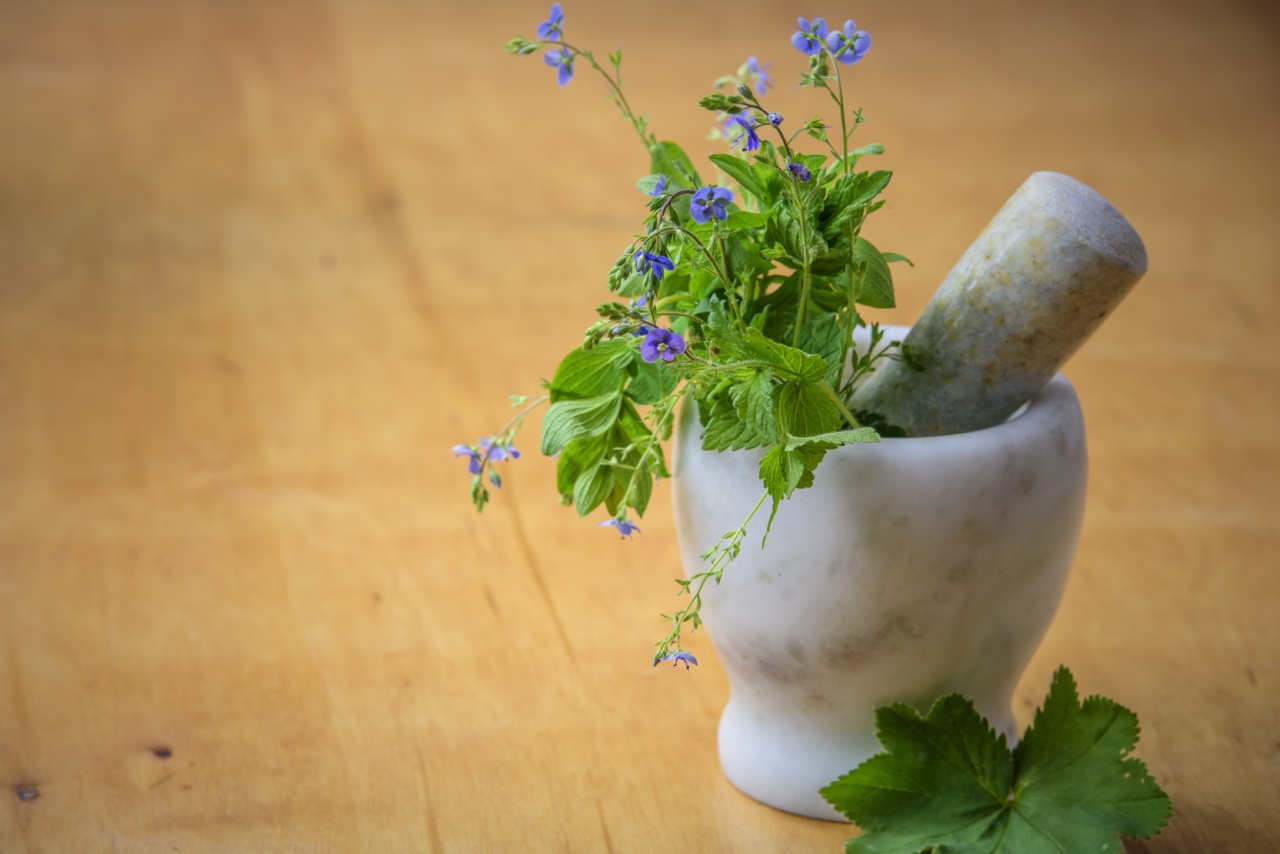Prostate cancer is a leading cause of cancer-related deaths among men in many parts of the world.
While there are several treatment options available, some herbs and spices are known to have anti-cancer properties that may be helpful in preventing or treating prostate cancer. In this article, we will discuss some of these herbs and spices and their potential as prostate cancer fighters.
: Turmeric
Turmeric is a spice commonly used in Indian cuisine and has been used for its medicinal properties for centuries. Curcumin, the active ingredient in turmeric, is known to have anti-inflammatory and anti-cancer properties.
Studies have shown that curcumin inhibits the growth of prostate cancer cells and induces apoptosis (programmed cell death) in these cells. Curcumin also has a synergistic effect when used with chemotherapy drugs, making the treatment more effective.
: Ginger
Ginger is widely used in alternative medicine for its anti-inflammatory and anti-cancer properties. Several studies have shown that ginger inhibits the growth of prostate cancer cells and induces apoptosis in these cells.
Ginger also reduces the side effects of chemotherapy and promotes healing after surgery. Ginger can be consumed as a supplement or brewed as a tea.
: Garlic
Garlic is a well-known herb that is used for its flavor and medicinal properties. It is known to have anti-cancer properties and helps promote a healthy immune system.
Studies have shown that garlic inhibits the growth of prostate cancer cells and reduces the risk of prostate cancer. Garlic can be consumed raw or cooked.
: Green Tea
Green tea is a widely popular beverage that is known for its anti-inflammatory and anti-cancer properties. It contains antioxidants that prevent the growth of cancer cells and help maintain a healthy immune system.
Studies have shown that green tea reduces the risk of prostate cancer and inhibits the growth of cancer cells. Green tea can be consumed as a supplement or brewed as a tea.
: Pomegranate
Pomegranate is a fruit that is known for its anti-inflammatory and anti-cancer properties. It contains antioxidants that prevent the growth of cancer cells and reduce inflammation.
Studies have shown that pomegranate inhibits the growth of prostate cancer cells and may reduce the risk of prostate cancer. Pomegranate can be consumed as a juice or eaten fresh.
: Nettle
Nettle is an herb that is used for its anti-inflammatory and anti-cancer properties. It contains compounds that inhibit the growth of cancer cells and reduce inflammation.
Studies have shown that nettle inhibits the growth of prostate cancer cells and may reduce the risk of prostate cancer. Nettle can be consumed as a supplement or brewed as a tea.
: Cat’s Claw
Cat’s claw is an herb that is used for its anti-inflammatory and anti-cancer properties. It contains compounds that inhibit the growth of cancer cells and reduce inflammation.
Studies have shown that cat’s claw inhibits the growth of prostate cancer cells and may reduce the risk of prostate cancer. Cat’s claw can be consumed as a supplement or brewed as a tea.
: Saw Palmetto
Saw palmetto is an herb that is used for its anti-inflammatory and anti-cancer properties. It contains compounds that inhibit the growth of cancer cells and reduce inflammation.
Studies have shown that saw palmetto inhibits the growth of prostate cancer cells and may reduce the risk of prostate cancer. Saw palmetto can be consumed as a supplement or brewed as a tea.
: Tribulus
Tribulus is an herb that is used for its anti-inflammatory and anti-cancer properties. It contains compounds that inhibit the growth of cancer cells and reduce inflammation.
Studies have shown that tribulus inhibits the growth of prostate cancer cells and may reduce the risk of prostate cancer. Tribulus can be consumed as a supplement or brewed as a tea.
: Milk Thistle
Milk thistle is an herb that is used for its anti-inflammatory and anti-cancer properties. It contains compounds that inhibit the growth of cancer cells and reduce inflammation.
Studies have shown that milk thistle inhibits the growth of prostate cancer cells and may reduce the risk of prostate cancer. Milk thistle can be consumed as a supplement or brewed as a tea.
: Conclusion
While the herbs and spices discussed in this article have shown promising results in preventing and treating prostate cancer, it is important to remember that cancer treatment should always be done under the guidance of a healthcare professional.
These herbs and spices can be consumed as supplements or brewed as teas, but it is important to consult with a healthcare professional before adding them to your diet. Incorporating these herbs and spices in your diet along with a healthy lifestyle may promote overall wellbeing and reduce the risk of cancer.































